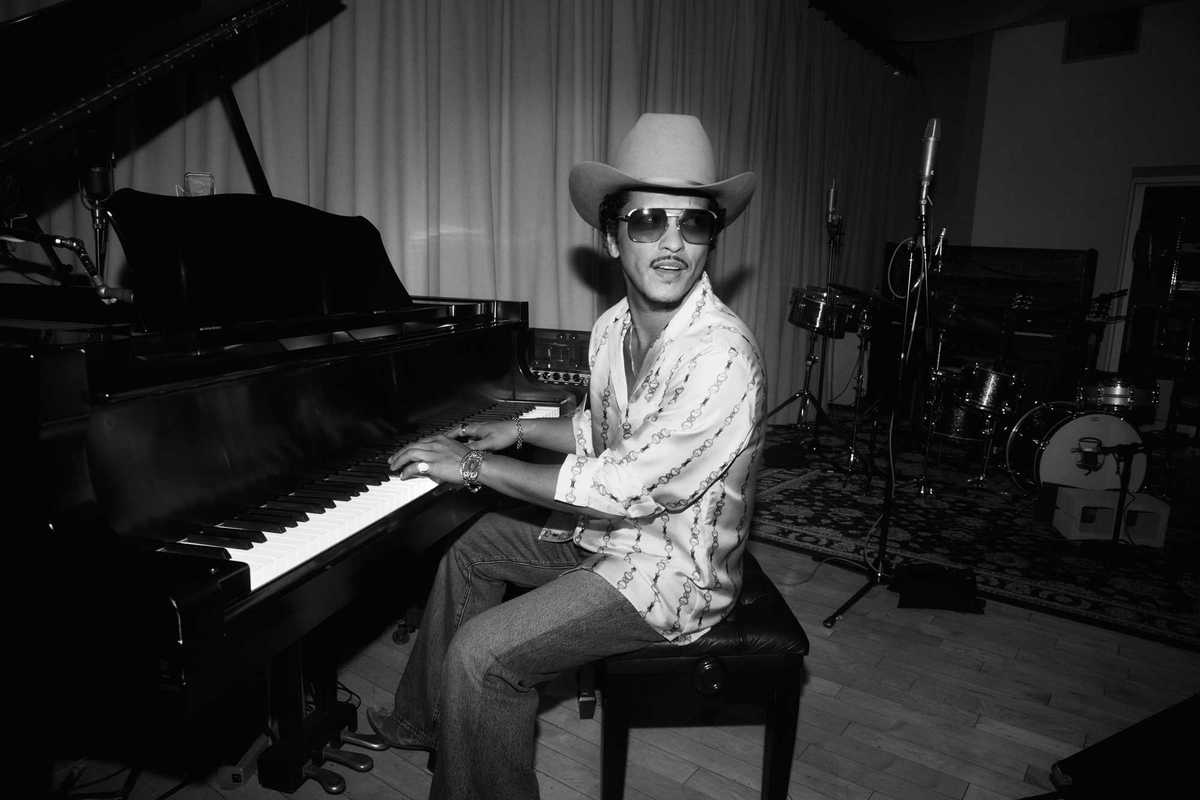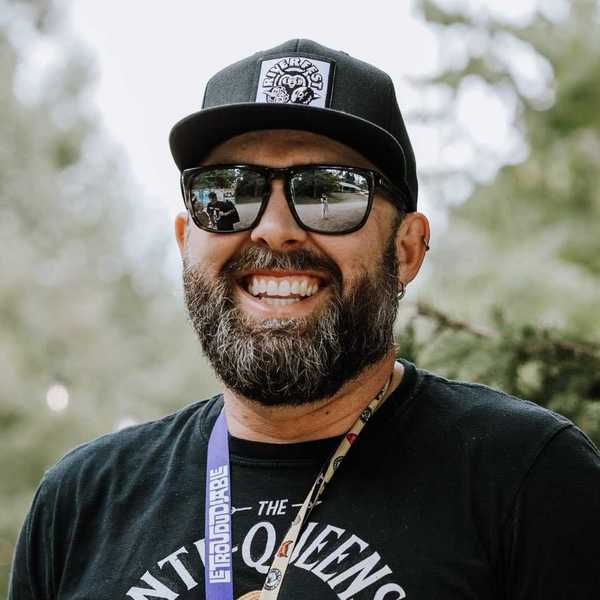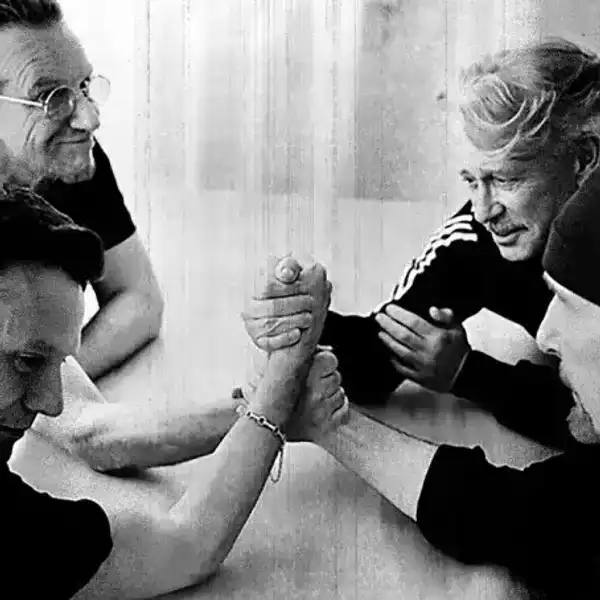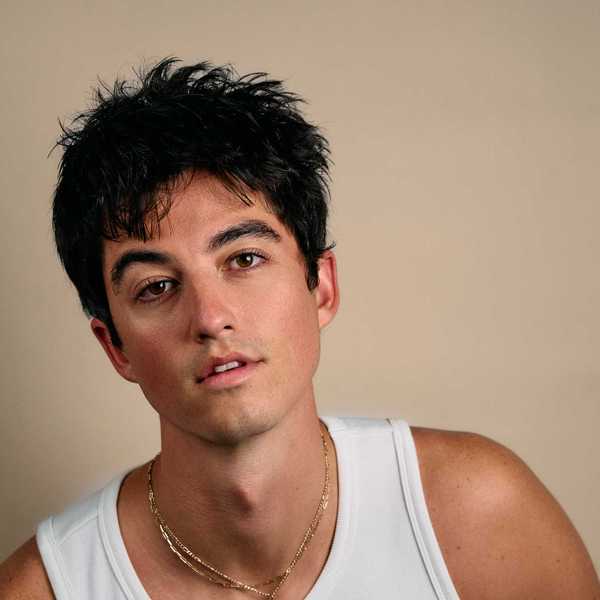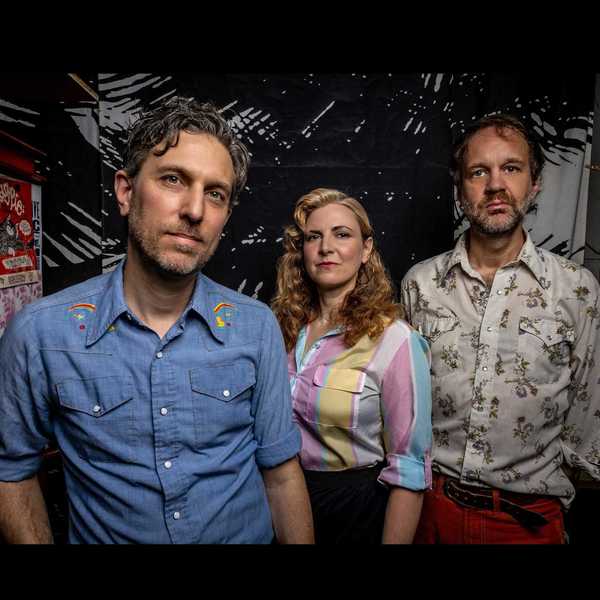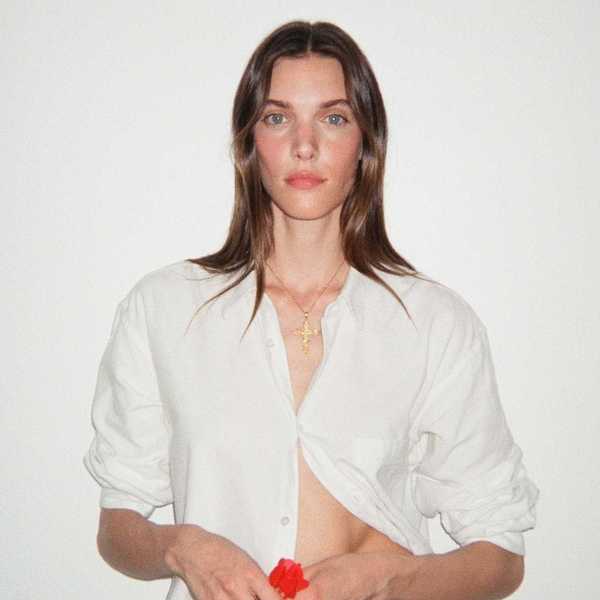A Conversation With ... Guitarist Bill Dillon
From Grant Avenue Studios and a small FACTOR grant to a career catalogue that includes working with The Hawks, Joni Mitchell, Robbie Robertson, Iggy Pop, and Peter Gabriel. The list is long, and, for the first time, he shares his storied career with Bill King. Photo: Bill Dillon (l) with Paul RK Wheeler Jr.
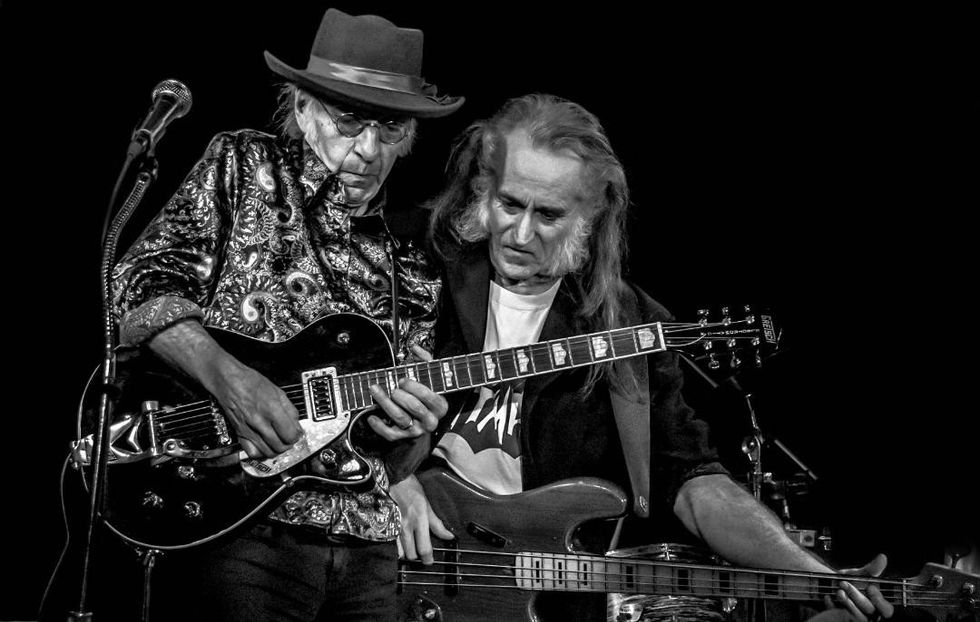
By Bill King
I've often thought about the year I spent as a "Hawk" in the Ronnie Hawkins band and the profound history attached to that. It brings to mind the keyboard players who came before me – Garth Hudson, Richard Manuel, David Foster, Stan Szelest, and the company one keeps. Hawkins would often laud the original Hawks with Levon and Robbie. Years later, at galas and various functions, mostly trapped in a men's room with the both of us in attendance, Hawkins would chuckle, look around and shout to anyone listening, "Bill and David Foster played too many blacks notes." I'd laugh at the peculiar quip knowing full well most of the Hawks' playlist was in either A or E. I'd then fire back, "thirty songs, thirty years," which pretty much summed up Ron's accumulated repertoire.
The 1983 unit Hawkin's called the second-best version of the Hawks sported an all-star cast: Steve Hogg bass, Dave Lewis drums, newly inducted Robin Hawkins and guitarist Bill Dillon – who threw me off with those circular wire-rim glasses. I wondered if this was the guy who wrote, "Imagine?" And for a fleeting moment, Amy Sky was in the band. I'll leave this story for another time, but for now, it's all about guitarist Bill Dillon.
As we spoke, it was apparent Dillon had given considerable thought to his past body of work - a lifetime of connections, situations, luck and opportunities – the performance halls and studios he graced for decades. Bill didn't make this easy. I courted him for several months, knowing there was a magnificent story in need of telling. I also read Bill's Facebook retorts when others disparaged Robbie Robertson and sensed there was something Bill wanted to say about his 15-year relationship with Robertson - something those with biased opinions were unwilling to accept.
Then there's Bill discography: The Cowboy Junkies – All That Reckoning, Barenaked Ladies – Fake Nudes; The Waillin' Jennys – Bright Morning Stars; Robbie Robertson – How to Become Clairvoyant, Contact from the Underworld Red Boy, Robbie Robertson; Sarah McLachlan, Rarities, B-Sides & Other Stuff, Wintersong, Afterglow, Good Enough, Hold On, Fumbling Towards Ecstasy, Possession, Fallen; Joni Mitchell – Dreamland, Night Ride Home, The Beginning of Survival; Kate & Anna McGarrigle – Heartbeats; The Neville Brothers – Brother's Keeper; Daniel Lanois – Acadie, Rocky World, For the Beauty of Winona; Peter Gabriel – US; Gordon Lightfoot – Songbook, A Painter Passing Through; Iggy Pop – American Caesar. I'll have to stop here – it's a page-turner.
There's no way a conversation as such can address a catalogue this deep. Yet, Bill and I get to the essence of his early childhood: producer Daniel Lanois – Grant Avenue recording studio, Robbie Robertson, George Harrison, Joni Mitchell and the band that started it all for him, Steve Hogg and Ian Thomas.
Bill King: There are moments I reflect to 1983. I was playing Nashville, Little Rock and Fayetteville, Arkansas with Hawkins and the iconic bands and artists who would show from one night to the next: Alabama, Lee Greenwood, Mel Tillis, Dr. Hook, Larry Gatlin, Tanya Tucker.
Bill Dillon: Isn't that great? I told you in pre-interview there isn't one topic we couldn't eat up the whole interview doing. And we did the CHCH television show with Beverly DeAngelo, B.J.Cook, and Ronnie – Doug McClement, Stan Szelest and all that.
B.K: Tell us about the summer of love.
B.D: I'm fifteen, and just coming of age, I was taken from Toronto and stuck in the heart of the Niagara fruit belt. We took over my grandmother's house in Grimsby, she passed away, and it was awesome there. It was still the last place I wanted to be. I quit school after two months and started hitchhiking back and forth to Toronto. I also started meeting musicians in Grimsby – David Van Dusen, Steve Hogg and others, people I looked up to. They had been doing the real playing in the Niagara area. They knew more and played more. I showed up with a $12 electric guitar and didn't even know how to tune it. That summer, I commuted – slept in Queen's Park in Toronto - busked in Yorkville for nickels and dimes and cigarettes.
All my life, there's always been this little radio on top of the fridge. My parents love country music. At night when they weren't around, I'd pull a chair near - climb up and spin the dial. I've been a nighthawk all of my life. I learned to tune out with my hand over the radio speaker, the vocal so I could hear into the speaker and the music and study the steel player and the banjo picking, mandolins and guitar stuff. That was an incredible experience for me.
B.K: What was your big break?
B.D: One night, I got called down to Daniel Lanois' studio, Grant Avenue. That was the big break, but before that, it was actually Ian Thomas and Steve Hogg. Ian had organized some FACTOR money to do a four-song demo with Steve Hogg. They brought me in, and it was at the CBC studio when Ian was still a producer. I showed up late to the session because I was sleeping on someone's floor, dragged the guitar down and plugged in. After the session, Ian drove me home. I think I was living in Bimbrook at the time. On the way there, he said, "Bill, that was so great; I can't believe the solo you pulled off, the song and whatever. I don't know about Josh, would you be interested in joining the band?" I had just got married and said I'd have to ask my wife. She said no.
I kept playing in bands, worked at CNR fixing trains and enrolled at McMaster University. Daniel Lanois started building a studio. I'd known him since 67' or 68.' He was playing in bands in Hamilton. Because we knew each other and he and brother Bob were doing jingles, commercials - it was Bob who asked one night if I'd like to play pedal steel on this young guy's first recording. I didn't have one, so I found a student model and we played around with it, and I did what I could. That was Tom Wilson from Blackie & the Rodeo Kings.
B.K: More on Daniel Lanois.
B.K: Another night, Daniel calls me up with this experimental idea. I brought my pedal steel to Grant Avenue studio and set it up, and set up the limited pedals I owned and started tuning my guitar and running up and down my three or four pedals - turning them on and off to make sure they were working. That took like 1:58 seconds or something. I look up for a signal to say I'm ready to go, and Dan's waving at me to come into the control room. I assume I'm going to hear something he wants me to work on. I sat on the little leather couch, and he said, "Check this out." He turned the speakers up because he knows I love loud. I heard this thing roll on to the end. My eyes bugged out, and my jaw dropped. I looked at him and asked, "What the hell is that?" He says, "That's you, you just did that. He played it again and explained he had put all the things I had been doing getting guitar ready through his effects gizmos in the studio - a Lexicon Prime Time and various things.
I didn't realize he was playing with this, and then he turned and asked, "What do you think of this experiment? How do you like this. I said, "Dan, "This is the most amazing thing, Oh my God." He then looked at me and said, "Right. I've been asked to do three records. So and so, so and so, and one is Robbie Robertson." I think one was Simply Red; I can't remember the other and Robbie. It was the first time I'd heard that name in like ten years. I asked him, "You are producing a Robbie Robertson record?" He says, "Yes, and I want you to come with me." He then says, "I'm going upstairs to use the bathroom, and I want you to make up your mind by the time I return." He ran up the stairs and came right back down, opened the door and looked at me, "Did you make your mind up." For a split second, I gave it thought and then blurted out, "Yeah." He then said, "Well, that's it, then." His favourite thing to say. He reached over, picked up the phone and called Robbie Robertson at home. I'm sitting there – this university student, not believing what I'm watching and hearing and ask, "What am I going to do?" He says, "You can tune the guitars, make coffee, do whatever and see what happens." This happens in like ten seconds.
So Daniel says to Robbie, "I want to bring this guy," and Robbie says, "Well, I don't know him from Adam. Well, OK, if you say so. See you in a couple of weeks." In two weeks, I'm sitting in Robbie's personal studio at Village Recorder.
Bill King: And you did this for fifteen years.
B.D: Can you believe that? My time with him kicked so many doors open. I was getting calls in L.A. from other producers while doing a Robbie record. Hey, I just heard some licks on that record, I want you to come and do so and so. I'd be getting off one plane then getting on another. France and Germany, England, Ireland.
B.K: How did it work in the studio between you to. Did he ask you to try this or that?
B.D: I found out the best thing for me was to know the lyrics. Up until then, for me, it was not to be a musician and just play the songs. It was the sound of the vocal cords and how they sang those songs and how they delivered them. What I was bringing to Robbie's table was my love of song. John Sebastian, John & Paul, Bob Dylan, Justin Hayward from the Moody Blues and, of course, The Band.
I was sitting there on a chair with an acoustic guitar, Daniel Lanois standing there, and Robbie looking at me given instructions. I'm just banging away on this acoustic. It was kind of like I'd know the song after one listen. We'd just talk about it – what do you think, why don't we do like this? Robbie didn't know my background, my love for The Band and how I idolized those guys.
Garth Hudson, still today, is one of my biggest inspirations. I couldn't say I was into the guitar players in The Band so much. They just happened to be great at what they did. The songs were the vehicle, and the guitar playing was either great for the songs or not.
I loved Justin and Zal Yanofsky in the Lovin' Spoonful. All of the bits he did, "Wow." If you change one iota of these songs, it would not be the same. One iota of a Band album. With Robbie, it was the lyrics that had to be so emotional to me to come up with a response.
B.K: We had been talking back and forth on the Salon Magazine article that just came out. So much is said about Robbie's relationship with fellow "Band" mates. It's near impossible getting a read on a person under so much scrutiny. During a recent Salon Magazine interview with Robbie about the film Band of Brothers with writer Gary M. Kramer, this question came up, followed by Robertson's persuasive response.
From the interview conducted by Gary M.Kraner: You visit Levon Helm on his deathbed. I understand from the film that there was conflict over songwriting credits and money. Do you care to comment further about waiting until it was too late to reconnect with Helm?
"Here's something that I've not said before. To this day, on The Band's songs, I share the publishing and songwriting credit with Levon. The other guys said they wanted to sell their part of the publishing. When we started, everyone was supposed to write songs. [When they didn't], I thought they were lazy. But some people can write songs, and some can't. Levon didn't write songs. I gave him credit on some songs because he was around. Garth was a great musician, but he couldn't write. Ringo Starr doesn't write songs. Charlie Watts doesn't write songs, and they don't share publishing credit with the other guys in their groups. After 16 years together, Levon never once mentioned songwriting. When it came up, I was generous about it. I did stuff I didn't have to do, and I did it to be a good friend. It was 10 or 15 years after that when Levon was struggling financially, and he's blamed someone else for what happened with him. This was another case of that."
B.D: You know I was going to ask you if I could share that on my Facebook page too. That answers everything.
B.K: Bill, from all the footage I saw in Band of Brothers, reading Testimony, Levon's This Wheel's on Fire – you see Robbie in action. Words, words and words. Daily writing sessions with Dylan at Big Pink.
B.D: Isn't that it? When I read that, I said there you go. That's exactly what it is. I've done a lot of stuff with Robbie from the movie soundtracks, Native American records, two Robbie solo records, all of the TV shows, specials in Europe and Rome and Spain. It's amazing. I lived with him when we were doing stuff. That's a lot of camaraderie. People who are listening or reading this interview, I'm going to underline something with a thousand underlines. Nobody knows more than me, speaking for myself, how he really is as a human being, a musician, a writer, and as a friend – how much he loved with all of his heart those guys. I can not stress that enough. Nobody knows that because they don't live with Robbie. Nobody knows that because they don't work with Robbie. They haven't recorded with him, hung out with him, in restaurants, control rooms, or hanging out with other people. More importantly, making those songs.
When he was asking other musicians to play something, he'd be referencing a sort of drum style or bass part – he'd just want somebody to be on the song like Levon, but he couldn't say that. With Vinnie Colaiuta, he'd say, "Can you make it more like shifty" – his favourite word. He had great admiration and love for those guys. He knows them better than anyone.
B.K: For some reason, some want to take sides in this who are way out of the loop. I always consider the music first. How about Bill, the young man?
B.D: I started life as an emotionally autistic kid. I didn't know that. I was left to my own devices in a very dysfunctional home. Ages one to five, I was nowhere where I should be. I was decades behind everybody else emotionally. When 1965 came along, not only was I ten years younger than Robbie and the other musicians doing anything here – I was ten years younger than the Beatles. By the time I got a hold of my first guitar, it was something I could latch on to for some sort of emotional understanding. I was socially dysfunctional, emotionally confused, yet not looking for an escape. It was synchronicity – here are the 60s', here's the music, here's the guitar and here's the Beatles – "wow." Nothing turned me on like that.
At that time, Bill, there was this explosion of consciousness expansion and self-help books. There was Timothy Leary, Maharishi (Mahesh Yogi) Ouspensky (P.D. Ouspensky) and Allan Watts. This close friend of mine at the time turned me on to this. I hadn't had a guitar yet. After reading hundreds and hundreds of books, I'm looking for a way that would sit right with me, and one was an autobiography of Yogi. I'm twelve or thirteen at the time, and by the time I'm thirteen and fourteen, I'm heavily into this stuff and learning how to play the guitar sort of – Moody Blues.
George Harrison – All Things Music Pass album comes out. The Band album. Without The Band in my life, I don't think I'd be here talking to you. The Band was a lot deeper than they let on. It's layers of an onion. That's why those records are so vital. The same with All Things Must Pass. The Moody Blues - a cliché as they are in a lot of ways, at the time, was life-saving. It was three or four artists, three or four bands that carried me through. It was the gluing together Yogananda with this music, (Paramahansa Yogananda self-realization fellowship) sometimes on acid.
My connection with Robbie, Joni Mitchell, George Harrison, Richie Havens, this person and that person, all started then. It was decades later, I realized they were the only people I lived by. It was about emotional development from the day I was born. Here's this tunnel, and if I can make it through this tunnel – you'd meditate, you'd listen to this song you'd listen to this album all night – a hit of this, and it would take me places and me trying to get out of who I was. The baggage I had to get through was unbelievable.
Decades later, all this synchronicity, all these events moved synchronically through all my life. I couldn't believe the things that were happening. I was just going through them. Seeing Lenny Breau in person, meeting Chet Atkins, meeting B.B. King, meeting Danny Weis. We were just talking about Danny and reading his interview, and I was in a state of mind thinking about him at the Rockpile.
I didn't know George Harrison was into Yogananda. I thought he was into Maharishi, and that was over and done with.
Before we did this big music festival in San Remo, Robbie asked me to come and do this other thing. He then says George Harrison is coming. I didn't know they were friends before that. Excuse me! It was my connection through all of the music that got me to The Band, which got me to Robbie and Dan Lanois, who I grew up with. This is what brought me to George Harrison's feet. The connectedness of what I believe has been my whole path in life has been through meditation and self-realization. Even in the last five years, I've changed a lot. I see more now than I ever thought I'd dream of seeing.
Here I am in San Remo, Italy, in the summertime for a whole week and George shows up. We are out in the clubs at night - did our show, and he says, "Go find something for us." They handed me like five million lyres or something. Well, in two minutes, I found something and ran back to the hotel into this unbelievable suite overlooking the Mediterranean. I knock on the door, and there are Robbie and George and Robbie's manager. I sat up with George all night. We watched the sun come up together. He then hugs me goodbye. Robbie's in another room with some people. With my hip against George's and the hash on a pin and catching his eyes at that moment, I had no Beatle in me; you don't blow your cool. You're just one of the guys. I've said many times, the people in Spain could hear my bones rattling. There's no greater Beatle junkie than me.
About 3:30 in the morning, Robbie asks, "Bill, where are your guitars?" For one time in my life, I left them in the trunk of the limo. He says, "Phone the front desk and see if you can get the limo driver to bring them up." I phone the desk, and they say Gino is asleep; he's been busy all day. I couldn't do it. Besides, George's wife is a floor below waiting for him.
My first meeting with George. There was this gigantic hotel, with a marble hallway you walked through past marble pillars into a banquet room with glass doors out onto the Mediterranean sea down below the mountain. They had an espresso machine there, and I'm in heaven. I hear George Harrison is showing up that day, and get all dressed up and walk away down and sat on a couched and looked out at the gardens. I wondered when George was showing and hear this kerfuffle the hallway near the side of me, and way down the end of this room. I see this gang of people come in, and my heart started pounding. In the middle, you could see all of this flashing going – it's George. I see his head pop up, and hand go around the mouth and hear, "Robbie, Robbie." I stood up and said, "No, but I'm with him." He leaves the group and prances over to me. "Hey, how you doing?" A big hug and a handshake. The manager runs over and drags him away. Halfway through the sliding doors, George turns around to me and literally says, "You know, you look a lot alike… " but didn't finish it. "Tell Robbie I'll see him somewhere down the base of the river."
B.K: You have a wonderful story about first meeting Joni Mitchell.
B.D: I didn't know Larry Klein from Adam. Here I am in L.A., and here there are all of these big names and famous people I don't know from anything. One day Robbie had this song, Showdown at Big Sky. It was just me there in one of the small rooms at Village Recorder, and we were just getting started. So Robbie gives me a new song, and we are going to start with the lyrics. I went into the small playing area cubicle enough to put an amp and sit there. The day before, this truck shows up and delivers maybe thirty or forty basses. In front of me, all of the basses sit there and a gigantic rack full of equipment. I was waiting for Tony Levin to show and didn't remember him having all of this stuff.
The next day this guy shows up and says hi to Robbie and starts talking with Dan. Dan's looking at all of these basses; he's tuning up all modern stuff. He runs his fingers up and down the strings and says, "I think I'm more into jukebox type stuff for sound."
Dan located this single-pickup Telecaster bass with these industrial cable flat wound strings and a neck you could walk on. The pickup was dangling too. So they take the bass with pick up into Larry Klein, and he says, "OK, sure." He's sitting there playing this bass, and I'm in the cubicle, and within the first half-hour, we start jamming. He'd play something then I'd play something. I had something of me I wanted to throw in. That little thing I wanted to add before we were working on the song was given to me on a cassette by one of the engineers as I was going to the hotel one night. I pop it in the rental car and listen to and thought "wow" that's really cool. A few days later I phoned Larry at home and said I've got this little cassette and you should have a listen. He says," OK, come on up; I'll meet you at the café." I slipped him the cassette, and he played it for Joni Mitchell, and they turned that into the song Nothing Can Be Done.
After the second day of working with Klein, we had the bass part. We jammed and got it all down. After he was ready to go, he's sitting outside the studio in the coffee area. I'm sitting there thinking how much I enjoyed the two days. He has to leave, and I have to keep working on the song. He says, "Well, I've been telling Joni I've been having a great time."
After this back in forth for about twenty minutes, I ask him," By the way, what does your wife do?' He looks at me and says, "Well, it's Joni." I ask, "Do I know Joni? " and he says, "My wife is Joni Mitchell." I lose it and say, "You are married to Joni Mitchell?" I then ask him, "Would you do me a favour. Since I was a little kid, one of my favourite guitar players, let alone songwriters is Joni Mitchell." Somebody had given me the Blue album, and I hadn't heard anything like that since Richie Havens. To me, she's an amazing player." As a guitar player, most don't talk about her in that way. And for me to ask him to tell Joni, I'm probably her biggest fan, and she influenced a lot of things for me in ways I didn't know was something special. He said he'd be more than happy to pass along to her and said, "great meeting you."
Two days later the phone rings in my hotel, and it's Larry. "Hey Bill, you know that café you hang out up here in Brentwood, we're just down the street, Joni would like to meet you. Let's meet for lunch." She walks in and says, "Hey Bill, nice to meet you." A waiter comes over to take our order, and she says, "Yes, I'd like some macaroni and weiners, can you put that together for me?" I fell apart inside, knowing I'd lived on that meal. If Lanois paid me for the session, I'd buy and slice up the weiners in the K.D. I ordered an espresso and started talking.
"I've got some songs I'm working on, and Larry was telling me about this and that. Would you like to come up to the house? It's just down the street" She wanted me to listen to songs. I said to them, 'better ask Robbie'. They said, 'OK, let us know'.
So Robbie and Lanois are in the control room at Village Recorder, and I tell them I'd just had lunch with Larry Klein and Joni Mitchell. Of all things, she asked me if I could come to her place tonight after work. Robbie's smiling and Dan's shaking his head, smiling, looking down at the floor. I say, "I didn't want to answer them without asking you first." Robbie gets up and walks to the end of the console – twisting a cable cord and says, just like this, "That's alright, Bill if you want to play girl's music." Dan cracked up, and I didn't know where this was going.
After work, I jump in the car, drive over to Bellair, pull up and push buttons that open gates to this beautiful Spanish mansion.
The first visit went really great. I kept going day after day, and we made a record. There's this one song for the life of me I could never tell you what it was and I asked her, 'There's this song you did this thing on guitar, the rhythm, the bass part – how did you do that?' "She says, 'Well, that's such and such a tuning'. She has thousands of guitars around, and each one is a different tuning. She invites me downstairs. I walk down this circular staircase – a turret, and through a door, you could see the pool where that famous picture of her floating on her back, which became an album cover. She pulls out the acoustic guitar she used for that song and says, "I kind of did it like this." She starts playing the song live to me just like the record – I hear – the rhythm, the two fingers parts, the bass notes, the melody and the chord changes, the open strings, the fretted strings. She hands to me, and as I held the guitar, she got frustrated watching me try a bar or two of it and the fact I couldn't play it just like her. Moments like that, I'll cherish the rest of my life.

